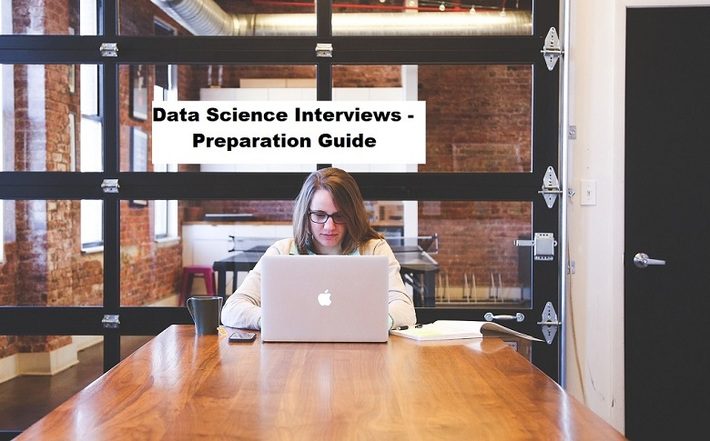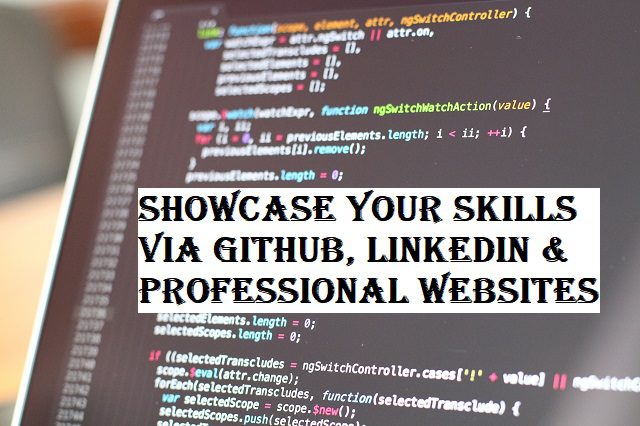If you are a recent graduate or someone preparing for your first data scientist position, then here are some tips to help you ace your interview!

Interview types:
For core data scientist roles, you will have both technical and behavioral interviews.
Some employers will have them as separate interviews, while some use the same time slot to do both. Lately a lot of initial phone screens use a combination of tech Qs apart from the traditional “resume walk-through” to narrow down the applicant list for round 2 interviews. So be prepared for some basic tech Qs even on initial phone screens with HR.
Coding interviews (using collaborative software or take home tests) are also becoming routine, but only on topics listed on your resume. So if you’ve listed Python, expected to show some coding on it. If you put R/SQL, don’t be surprised if you are asked to write pseudocodes or complex joins.
The interview format itself can vary a lot, ranging from phone, teleconference, in-person, online skill tests and a combination of all. In-person interviews is usually the last round and some companies are completely eliminating onsite interviews to cut costs, especially for teams that are fully distributed across the globe.
Technical interviews:
- Stats/ML algo: Expect to be grilled on the basic ML algorithms like regression, clustering, xgboost. You don’t need to go into the detailed math behind them, but it is expected that you understand how they work, and which algo is suited for which use case. A lot of managers will ask you what your fav ML algo is and why. There is no right answer, but you should present a convincing “why”.
- Coding skills: Data analysts can get away with lesser coding, but data scientists do need show serious programming chops. You may be grilled on your language of choice (R/Python/Java sometimes) and many also have Qs on SQL.
- Dataviz: Analyzing data is the initial part of the data scientist role, but presenting insights for decision making is an even more critical part. So you do need to be good at presenting your data and showing recommendations that can be used meaningfully. Showing a clear summary report will be the icing on the cake that sets you apart from other candidates. If you have a take-home test (prediction problem or gathering insights) make sure you create a summary report, whether they ask for one or not.
- Projects: A unique portfolio is the easiest way to rise above the competition, often because those keywords are what got you the interview call in the first place.

- Many employers are also asking candidates to present a “code walkthrough” of your own github or personal project, so use this opportunity to shine!
- Ideally you’d want to present a project that is relevant to the domain or company you are applying to, so the manager can clearly see how your skills are applicable to his team.
- For example, when I interviewed at Nasdaq I presented a R dashboard in tableau style with stock prices prediction, using data from multiple APIs. I highlighted my R-skills, my dataviz skills and my knowledge of the trading/finance domain. Creating a custom project definitely.
- For detailed ideas and tutorials to turbocharge your portfolio, look at my other post here.
- Projects also act as keywords on your Linkedin profile, so you show up in more searches by recruiters or hiring managers who are looking.
Behavioral interviews:
Use the STAR method to answer these Qs, which will basically evaluate you on (a) Teamwork/ culture fit, (b) Communication skills, (c) Problem-solving, (d) presenting convincing “actionable insights”.
This might seem like a lot of topics, but data scientist roles are highly paid ($100k+) because these roles require a ton of specialized knowledge. That said, if you want more details on how to get interviews or prepare with a detailed list of 100+ technical and behavioral Qs asked in actual DataScience interviews, then take a look at my book – “Data Science Jobs”. This includes resources on interview Qs on ML algos/ statistics / R/Python/Tableau as well.
All the best for your job search!

